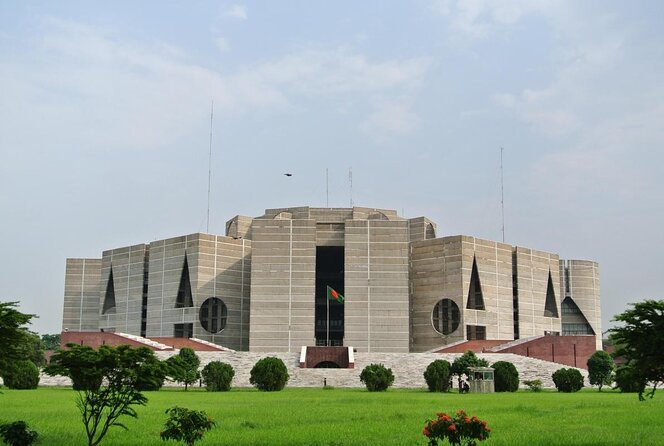With Hasina out of the way, the opposition is back, a new challenge for the student movement
After a provisional government was announced, the Bangladesh Nationalist Party has re-emerged on the political scene. Its leader, Khaleda Zia, is free and her son seems poised to run. Hindus and Christians have been attacked, but this was not part of the protests. University students risk being marginalised if they do not become politically organised.
Dhaka (AsiaNews) – Bangladesh is now waiting to see what happens after Prime Minister Sheikh Hasina resigned in the wake of almost a month of protests.
Yesterday, General Waker Uz Zaman, Chief of Army Staff, addressed the nation announcing the formation of a transitional government to lead the country to new elections within 90 days.
Muhammad Yunus, winner of the Nobel Peace Prize in 2006, has accepted the position of advisor as requested by university students, who broke the news this morning on their Facebook accounts.
But it is opposition parties, excluded from power for years, that now seem set to capitalise on the success of the student movement, which started at a grassroots level with no political affiliation, an anonymous source explained.
"The protests, initially over quotas in state jobs and then against the government, were not linked to opposition political parties, such as the Bangladesh Nationalist Party (BNP) or the Islamist Jamaat-e-Islami.”
“Civil society groups were the first to join the students; doctors, lawyers, artists, professionals of various kinds decided to support the cause” against a government that became increasingly authoritarian in the past 15 years, characterised by the repression of dissent and control of information.
For the source, now former Prime Minister Hasina made several mistakes. “She did not understand that the protests were symptoms of widespread youth malaise.” She called the students "terrorists" and, despite Internet shutdown, videos of police violence against unarmed young people and minors fuelled popular anger.
After her resignation was announced, thousands of people poured into the streets yesterday, occupying the Parliament, storming the Ganabhaban, the Prime Minister’s Residence, and took what they found: chickens, fish and even an elliptical exercise machine that belonged to the prime minister.
A statue of Sheikh Hasina's father, Sheikh Mujibur Rahman, the independence leader considered the founding father of Bangladesh, was also beheaded.
This new wave of protests was made possible by the military, which decided not to intervene after weeks of violence that brought the death toll to over 440, according to local sources, and the arrests of more than 10,000. Yesterday alone, more than a hundred people were killed.
Meanwhile, members of religious minorities, considered Awami League voters and supporters, have been attacked. The Bangladesh Hindu Buddhist Christian Unity Council reported incidents affecting minorities in 29 districts of the country. At least nine Hindu temples were damaged and several houses looted.
“Some miscreants also forcibly looted domestic animals because the victims supported the Awami League,” said Nirmol Rozario, president of the Bangladesh Christian Association, speaking to AsiaNews. “Several Christian families reported that their homes were vandalised due to their support for the Awami League. This should not happen. I call for the security of minorities.”
Missionary schools in the dioceses of Dhaka and Khulna and the Caritas office were also attacked. Cardinal Patrick D'Rozario, archbishop emeritus of Dhaka, called for the restoration of peace.
“We are so much saddened and our hearts are mournful because of the number of casualties,” the prelate said. “We are also witnessing revengeful actions against people of the former regime and destructions of national and individual properties and vandalising the historical and cultural heritages built since independence of Bangladesh.”
“We pray that all people respect and honour our past traditions and heritage where we all have been rooted. At this critical moment, our only pursuit is peace. Violence breeds violence. Hence, let us avoid all kinds of violent actions and revenge and opt for peace”.
"The BNP [also] had asked not to commit acts of vandalism," the source said. "It is not the party line and it has never been that of the students.”
In fact, “the BNP had previously tried to provoke momentum against the government, but without success. Only later did it support the demands of university students. And now, the student movement, without clear leaders, seems to have been relegated to the margins.”
Instead, opposition leaders have reappeared. Khaleda Zia, historic leader of the BNP and rival of Sheikh Hasina since the 1990s, was released from house arrest, where she was being held on corruption charges.
Several protesters arrested during the unrest were also freed along with her, but "these are two different types of prisoners," the source stressed.
In his televised address, General Zaman, said that he had held talks with the main opposition parties about the transitional government, but not with Hasina’s Awami League, which will not likely run in the next election and if it did, it would win few votes because its members are seen as enemy of the nation.
Khaleda Zia's eldest son, Tarique Rahman, sent a message from London (where he is in self-imposed exile), indicating that he is ready to run for the leadership of the country after the end of the Hasina regime.
Rahman has lived in the United Kingdom since 2008, the year when her mother lost the election to Hasina. He was tried and found guilty on several charges, including an attack on the Awami League in 2004, but after signing a document vowing not to meddle in Bangladeshi politics, he was allowed to go abroad.
Now the future of Bangladesh “will depend on young people, civil society, on how much they will be able to form their own political alternatives to the BNP and the Jamaat-e-Islami. The difficulty lies in the fact that it is a movement, with no party organisation, and this could be a problem.”
(Sumon Corraya contributed to this article)







.png)










